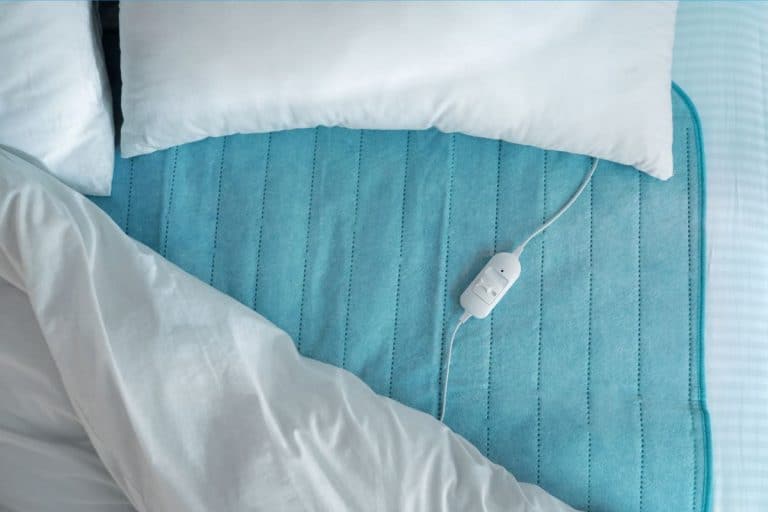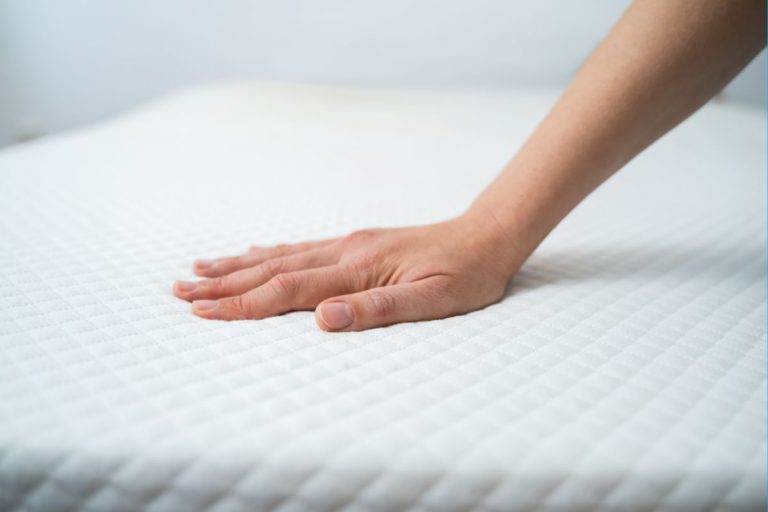The anxiety in the world today is over the roof because of the extensively spread coronavirus. Coronavirus is among the many viruses that affect our immune systems. Getting sufficient sleep is a remedy to not only reducing the intensity and incidence of disease but also strengthening the immune system.
Have you ever realized that you are more susceptible to sicknesses, sneezing and sniffling when you do not get ample sleep? A 2009 study established that folks that are sleep deprived were at three times higher risk of contracting a cold compared to those that had enough sleep.
How Sleep Affects the Immune System
The University of Washington conducted a study that sought to establish the relationship between the immune system and sleep. The researchers discovered that those who slept fewer hours suffered a more stressed immune system compared to those that had optimum sleep.
T cells constitute the immune system. They destroy others infested with germs. When we sleep, T cells get restructured into the lymph nodes. The other process that happens as we sleep is cytokines production.
Cytokines refer to the proteins that control inflammation. These proteins also collaborate with T cells to strengthen the immune system.
Lack of sleep means that the body produces low levels of the cytokine. Secondly, T cells are unable to get to the lymph nodes. The combination of these two processes means that the immune system is weakened thus leaving us prone to ailments such as the common cold. Because our bodies are unable to respond to viruses as they ought to, it means that vaccines are also ineffective.
On top of the lack of adequate sleep inhibiting not only the production but also the transport of cytokines and T cells, it also reduces the white blood cell count. This is an indication of a lower immune function. It is quite clear that sleep plays an important role in maintaining the body’s immune system and defense mechanism.
To cement earlier discoveries, this research that focused on 57,000 women who slept 5 hours at night discovered that the women were at a higher risk of contracting pneumonia which is a result of weakened immunity.
Adequate sleep enhances our immune response to the vaccine which in turn enhances the immunological memory of the body.
Sleep and Mental Health
Most if not all mental illnesses have a close association with disruption of sleep as a major symptom. Sleep loss affects the brain’s homeostatic sleep circuit.
This circuit promotes rebalance synaptic activity, energy metabolism, and protein metabolism. Due to the drastic changes in gene expression, sleep loss can result in psychiatric disorders like neurodegenerative disorders, schizophrenia, and autism.
Furthermore, severe loss of sleep can cause grave inflammation of the brain and promote metabolic states that are linked to pre-diabetes. These can be responsible for mood disorders such as anxiety and depression.
Food for Better Sleep
Some foods can make you sleepy while others deprive you of the same. Making changes to your diet can improve the quality of your sleep thus helping improve the strength of your immune system.
Here are foods that can boost your sleep:
- Tryptophan-rich foods – These are dairy foods that feature tryptophan, a sleep-enhancing substance. Other excellent sources of this substance include eggs, honey, bananas, seeds, and nuts.
- Carbohydrate-rich foods – Some late-night snacks full of carbohydrates include cheese, bread, crackers, and a bowl of cereal.
- Turkey
- Almonds
- Fatty fish
- Walnuts
The following are some of the foods that can harm your sleep and therefore need to be avoided:
- High-fat foods – In addition to making you gain weight, high-fat foods disrupt your sleep.
- Avoid high caffeine – Caffeine sources such as tea, cola, and coffee can come in the way of your sleep.
- Spicy foods – Spicy foods, in addition to giving you heartburn can disrupt your sleep.
- Grapefruit
- Black-bean chili
- Tacos
Read More: 14 Best Foods To Eat (And 8 To Avoid) Before Bed For Better Sleep
Aromatherapy for Better Sleep (And Strengthen the Immune System)
By sleeping better, your body can have ample rest and produce the necessary cells to strengthen your immune system.
One of the most effective solutions to lack of sleep is aromatherapy. Essential oils work magic in relieving you from sleep deprivation. Each of them brings with it a unique scent from the plant part it has been extracted from.
Inhaling the molecules of essential oil or absorption to the skin activates the brain chemicals that control sleep. By promoting relaxation, essential oils do much to enhance sounder sleep.
Some of the effective essentials that can promote better sleep include:
- Lavender – Of the different essential oils, lavender oil seems to be the most effective due to its widespread use in matters of sleep. For more incredible results, you can combine it with sesame oil. Using lavender oil for aromatherapy also reduces anxiety.
- Bergamot – A blend of sandalwood and bergamot is magical when it comes to improving sleep quality.
- Cedarwood – Cedrol, a major component of cedarwood, produces a calming effect. For better results, you can try mixing cedarwood extracts with pine oil, cypress, Virginian cedarwood, and Japanese cypress.
Note:
Although some essential oils are effective for sleep, some aren’t. These are good for other reasons such as increased alertness. Therefore, you need to avoid them if you are trying to improve the quality of your sleep.
Other essential oils that you should try to improve sleep are Ylang Ylang, lemon/yuzu, and clary sage.
Some of those to avoid when it comes to sleep include:
- Sandalwood – Inhaling sandalwood oil elevates blood pressure and pulse based on this research study.
- Rosemary – The stimulating nature of rosemary makes it a poor choice for solving sleep issues according to this research. It negatively affects respiratory rate, blood pressure, as well as heart rate.
- Petitgrain – In this study of stress and work performance, researchers discovered that this essential oil increased attentiveness and alertness.
Other Ways to Boost the Immune System
As we have already established, the immune system plays a big role in defending our bodies against microorganisms that cause diseases. Unfortunately, at times, because of one reason or another, it can fail. Lack of enough sleep is one of the reasons that can cause a weakened immune system.
So, apart from getting adequate sleep, what else can you do to strengthen the immune system?
1. Take Sweeteners, Spices, and Herbs
How about you boost your immune system with one drop every time? You can come up with a bitter concoction comprising of herbs, sweeteners, and spices to strengthen your immune system.
One of the most effective herbs you can incorporate into your mixture is Astragalus. This herb brings with it anti-inflammatory and antiseptic features. On top of that, astragalus helps the body resist infections and control its immune response.
Angelica root similarly is effective at assisting the body to modulate the body’s immune system. It can also treat cold symptoms and respiratory ailments. Finally, yet importantly, honey and gingers remain powerful antioxidants that have antibacterial and anti-inflammatory properties.
Honey not only prevents cell proliferation but also activates the body’s response to the immune system. Ginger, in addition to helping with muscle pain, assists with anti-inflammatory effects.
By mixing all these ingredients, you can come up with a highly effective immune booster.
Items Needed:
- One cinnamon stick
- One tablespoon dried orange peel
- One tablespoon honey
- One oz. dried astragalus root
- One oz. alcohol
- One tablespoon cardamom seed
- One tablespoon orange peel
- One tablespoon ginger
- Half oz. dried chamomile
Steps:
- Put the honey in two tablespoons of hot water. Allow it to cool.
- Mix all the ingredients apart from alcohol inside a mason jar. Once you have done that, pour some alcohol on them.
- Seal the mixture tightly. Store in a dark and cool place.
- Allow them to infuse until the attain your desired strength. 2 – 4 weeks should do. During the period, shake the mason jar once daily.
- Once the period has elapsed, strain the bitters via a coffee filter or muslin cheesecloth. Put the strained bitters inside an airtight container at room temperature.
Usage: You can take the mixture in two ways. Firstly, you can mix the tonic into hot tea. Alternatively, consume several drops the first thing in the morning upon waking up. Taking the concoction offers the utmost protection during the flu and cold season.
Note: Generally, if you are breastfeeding or expectant, you need to avoid taking this mixture.
The recipe features dried angelica root that not only increases miscarriage risk but also might stimulate contractions of the uterine. All these can be detrimental to your pregnancy.
Another important thing you need to know is that consumption of angelic root makes the skin to be delicate to sun exposure. Therefore, the use of sunscreen daily is highly recommended.
2. Eat Proper Diet
A frequent and well-balanced diet equips your immune system with the strength it needs to fight the deadly diseases. Malnourishment makes one susceptible to infectious ailments. The increased risk of disease contraction can be informed by the grave effects of malnutrition.
Deficiencies in certain micronutrients such as folic acid, copper, iron, selenium, and zinc tend to alter immune responses. If you doubt that the food, you’re eating is not offering you the essential micronutrients you need to complement with supplements.
For instance, if you are consuming vegetables regularly and aren’t getting the necessary benefits, you need to add some mineral supplements and multivitamins.
3. Do Your Best to Minimize Stress
Modern medicine appreciates that there is a close association between body and mind. Emotional stress effects cause an array of maladies such as heart disease, hives, and stomach upset. Scientists continue to actively research the association between immune function and stress.
Nonetheless, preliminary investigations opine that folks who are continually exposed to situations that make them stressful tend to have a somewhat weak immune system.
4. Consider Taking Probiotics
Probiotics are highly efficient when it comes to boosting immunity. When shopping for foods containing probiotics, such as cultured and fermented foods, be on the lookout for ”live active cultures” at the label. Some of the best foods to try that contain probiotics include:
- Kombucha and kvass – Kvass is a conventional Baltic and Slavic fermented beverage that is often made from rye bread. Kombucha, on the other hand, is lightly sweetened and fermented green or black tea drink.
- Kimchi and unpasteurized sauerkraut
- Tempeh, tamari, shoyu, natto, miso or tofu – Tempeh refers to an Indonesian meal made with fermented soybeans. Tamari or shoyu are different kinds of soy sauce from Japan. Natto, miso, and tofu are fermented soybeans.
- Leban, lassi, kefir, yogurt, cottage cheese – Leban is a semisolid or liquid food that is made using curdled milk. Lassi is an Indian drink that is made using buttermilk or yogurt acting as base and water. Kefir is drinkable, creamy and thick yogurt.
Note:
If you’ve never taken probiotic foods, you might find their flavors to be strong.
For this reason, it is prudent to begin taking them gradually. One spoon per day can go miles in assisting you to grow a taste for the beneficial foods.
Secondly, it is prudent to consult your physician before consuming a probiotic supplement. You should find an array of probiotic options at a natural food store’s vitamin section.





